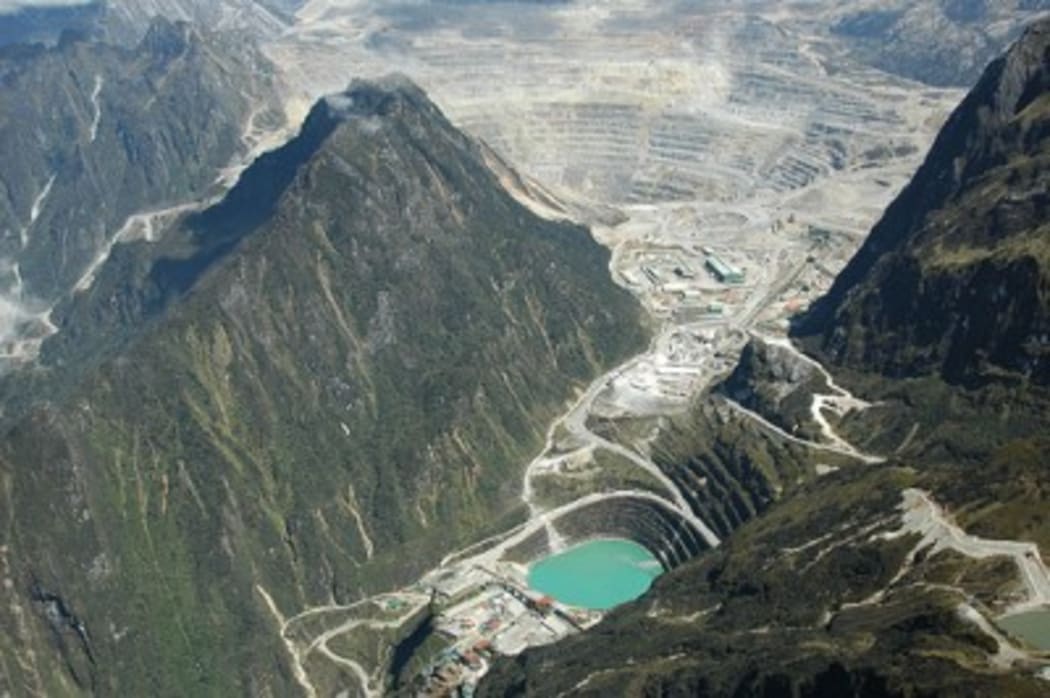A conference underway in Sydney today is seeking common solutions to two major areas of concern to people in the Pacific region.
'At the Intersection: Pacific Climate Change and Resource Exploitation in West Papua' runs for two days, hosted by Western Sydney University and the University of Sydney's West Papua Project.
The keynote speaker is Vanuatu's Minister of Lands and Natural Resources, Ralph Regenvanu. Others attending include climate change scientists and West Papuan analysts.
The organiser, Dr Cammi Webb-Gannon from Western Sydney University says climate change and pernicious resource extraction in West Papua have a deep connection.

West Papuans have long expressed frustration about the environmental destruction caused by the Freeport mine operations in Mimika regency.
Photo: MIneral Policy Institute
Transcript
CAMMI WEBB-GANNON: The island of New Guinea is home to the second largest swathe of pristine rainforest in the world outside of the Amazon, and the logging that's happening there is taking place at a breakneck speed, and we want to question at this conference whether if we can halt or even stop some of the resource exploitation - whether that's mining at Freeport, gas mining along the coast of West Papua or even looking at reducing the land clearing of MIFEE, the Merauke Integrated Food and Energy Estate - then maybe this can help slow down Pacific climate change which is also quite alarming. And so we want to look at whether campaigns for climate change could also apply pressure to campaigns opposing resource exploitation in West Papua, and to look at what benefits approaching both issues with similar sorts of energy and strategies might bring.
JB: You mentioned Merauke, that forest clearance and what's being done to the peatlands is part of a very disturbing ecological event really. What about those fires, isn't the Indonesian government cognisant of the environmental destruction happening?
CW-G: I think that's probably not their primary concern. The environmental destruction is far away from where the decision making is taking place. It's far away from the companies that are profiting from the resource exploitation. And West Papua has traditionally been viewed as a large expanse of vacant and usable land by the central government in Indonesia, and that's been a long-standing position on West Papua's land. It's been used as a place to send people from overcrowded islands like Java and Sumatra to relieve overcrowding in other parts of Indonesia. General (Ali) Murtopo said in 1969, I believe, that if West Papuans want their own land, they might need to go to the moon because Indonesia's not going to let any West Papuan people interfere in their plans for the land use.
JB: Charming...
CW-G: So I don't think the environment and indigenous rights and human rights are issues at the forefront of the decisions being made in terms of land clearing and overturning of peatlands and the fires that result. So it's up to West Papuan lobby groups and supporters and people concerned about climate change in the Pacific and more broadly to bring these issues to international attention.
To embed this content on your own webpage, cut and paste the following:
See terms of use.


